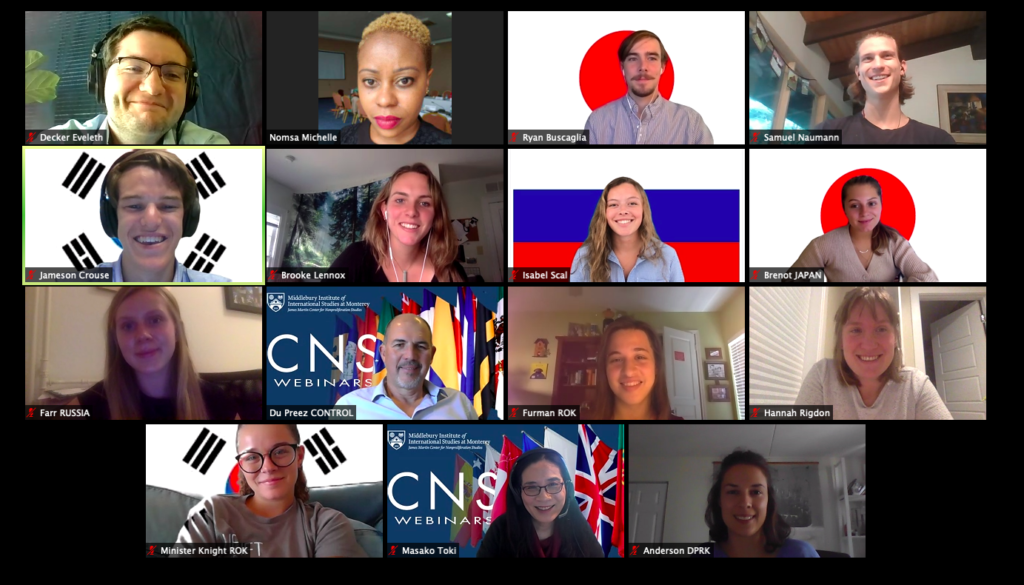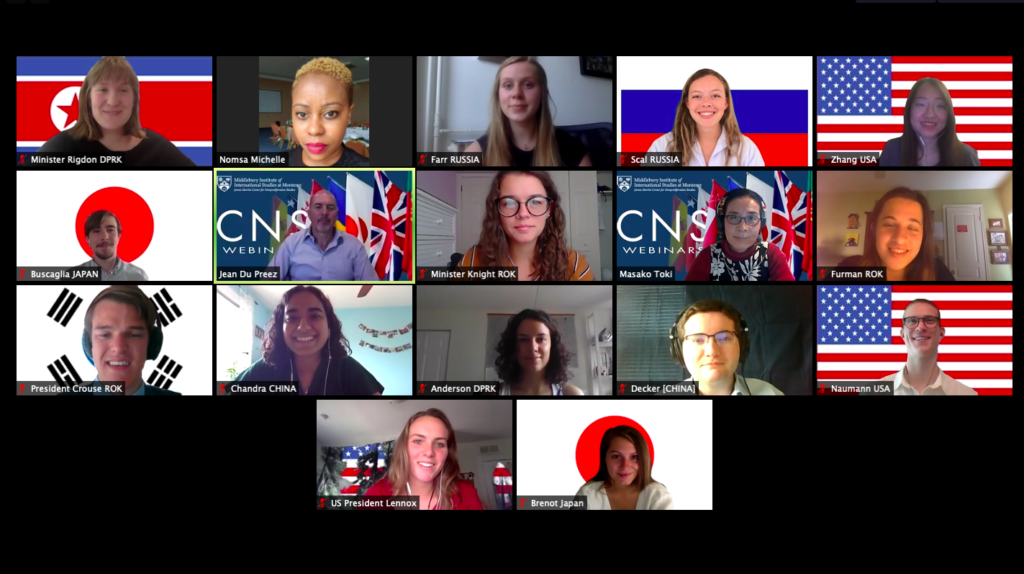August 18, 2020
Nomsa Ndongwe
As part of the Undergraduate Summer Nonproliferation Fellowship, 14 undergraduate students participated in an arms control negotiation and simulation exercise led by CNS Program Director for Education and Training Jean du Preez. Held from July 20–22, 2022, the exercise served as a basis for their immersion into the world of realpolitik, diplomacy, and world affairs in the format of a high-level preparatory meeting of an emergency summit between the leaders of South Korea, North Korea, the United States, Japan, China, and Russia.
The students had an opportunity to learn from a veteran diplomat and international civil servant the basics and foundations of concepts such as the best alternative to a negotiated agreement (BATNA), negotiation tactics and strategies, as well as the “do’s and don’t’s” that are taught in foreign service institutions around the world.
The two-day simulation allowed these students to put into practice what they learned from a series of lectures on nonproliferation, US/Russia relations, and nuclear disarmament and international nonproliferation challenges. For this exercise, the students simulated a high-level meeting on North Korea’s nuclear program and its destabilizing effects on the region.
The virtual element of the negotiations was just as novel to the students as it was to the moderators. Nevertheless, within hours, all participants had taken to their roles and responsibilities with impressive adeptness, and the realities of trying to compose a cogent document that captures the various competing interests of six countries had become very apparent.
Three days, a Slack channel, a slew of Zoom breakout rooms, a Twitter handle and thread #SummerSimNPT2020, numerous emails, as well as a very colorful Google document (or three) later, the high-level summit was brought to an end after “targeted airstrikes” scuttled the entire process.
The delegates learned useful lessons about the art and usefulness of diplomacy, and had shown an admirable commitment to resolving the security issues on the Korean Peninsula. These lessons would serve real world governments well, should these promising students decide to enter these fields in the future.
See also: A Hybrid Education Model in Practice


